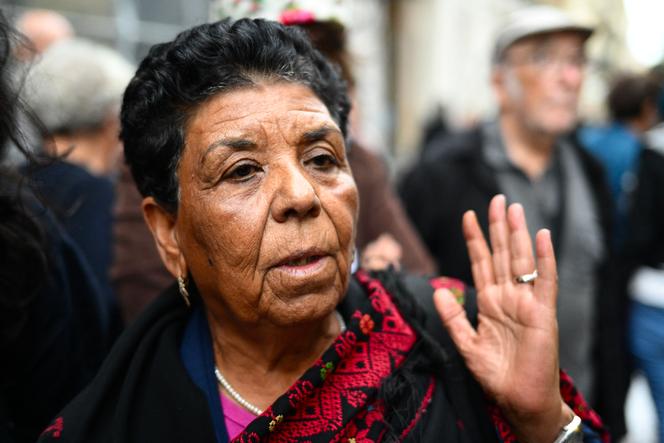


After a week's wait, the Council of State, France's highest administrative court, ruled in favor of the Interior Ministry. In its order issued on Wednesday, November 8, the institution upheld the expulsion order against Mariam Abudaqa, an activist with the Popular Front for the Liberation of Palestine (PFLP), who had come to France for a series of conferences.
"The presence on French soil of a PFLP leader who has claimed responsibility for attacks on Israeli civilians, with a view to expressing her views on the Israeli-Palestinian conflict, is thus likely to cause serious disturbance to public order," concluded the judge. He added that the expulsion of the activist "cannot be considered as a seriously illegal infringement of her freedom to come and go, nor, in any case, of her freedom of expression," contrary to what had been argued by the administrative court, which had suspended the expulsion order on October 20.
At the hearing before the Council of State on October 31, Interior Ministry representative Pascale Léglise argued that the 72-year-old activist's lectures on "colonization and apartheid" in Israel, while "admissible" until October 7 and the Hamas attack, were now likely to "add fuel to the fire." She also recalled that the Popular Front for the Liberation of Palestine, of which Abudaqa is a "head," according to the Ministry, remains an organization classified as terrorist by the European Union.
Defending Abudaqa, lawyer Julie Gonidec disputed this characterization of her role as an activist. "She was invited as a feminist activist by most of the organizations whose vocation it was to welcome her," argued the Palestinian's lawyer, who also refuted "[her client's] adherence to a strategy of armed struggle."
After the Council of State's decision, she added: "This is an extremely serious decision, which confirms an unprecedented misuse of the notion of terrorism to suppress any dissenting opinion. It's extremely worrying for the state of our public freedoms, because it consecrates an all-powerful interior minister to decide on the validity of critical debate."
While the recent investigation showed that "no material disturbance of public order was observed during her public appearances on French soil," it also noted that Abudaqa "not only remains a member of the Popular Front for the Liberation of Palestine but is a 'leader of the movement', as stated on the organization's official Arabic-language web site."
At a press conference in Paris on Tuesday, November 7, Abudaqa expressed her dismay at this legal episode. "In these circumstances, they want to silence me. They want to forbid us to express ourselves in the face of this horror. And this is what they call democracy and human rights today?" she denounced. "We took this call as a condemnation by the government of the struggle of our people as a whole. We feel like we have to die without saying anything."
You have 25% of this article left to read. The rest is for subscribers only.
